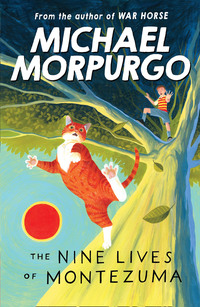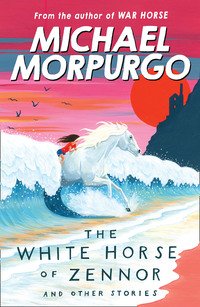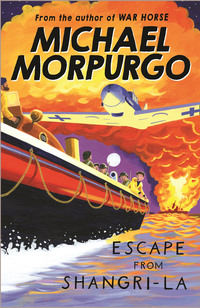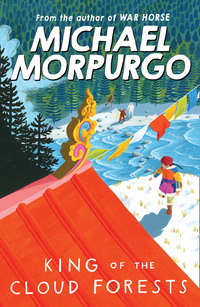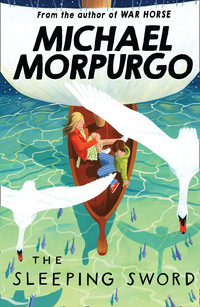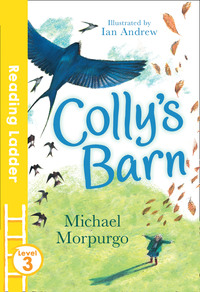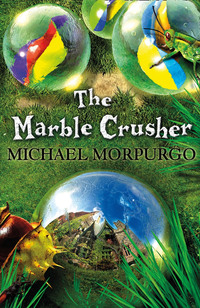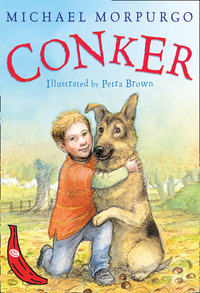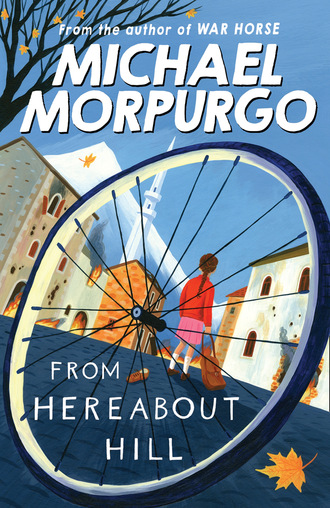
Полная версия
From Hereabout Hill

EGMONT PRESS: ETHICAL PUBLISHING
Egmont Press is about turning writers into successful authors and children into passionate readers – producing books that enrich and entertain. As a responsible children’s publisher, we go even further, considering the world in which our consumers are growing up.
Safety First
Naturally, all of our books meet legal safety requirements. But we go further than this; every book with play value is tested to the highest standards – if it fails, it’s back to the drawing-board.
Made Fairly
We are working to ensure that the workers involved in our supply chain – the people that make our books – are treated with fairness and respect.
Responsible Forestry
We are committed to ensuring all our papers come from environmentally and socially responsible forest sources.
For more information, please visit our website at www.egmont.co.uk/ethicalpublishing
The Forest Stewardship Council (FSC) is an international, non-governmental organisation dedicated to promoting responsible management of the world’s forests. FSC operates a system of forest certification and product labelling that allows consumers to identify wood and wood-based products from well-managed forests.
For more information about the FSC, please visit their website at www.fsc-uk.org

Also by Michael Morpurgo
Arthur: High King of Britain
Escape from Shangri-La
Friend or Foe
The Ghost of Grania O’Malley
Kensuke’s Kingdom
King of the Cloud Forests
Little Foxes
Long Way Home
Mr Nobody’s Eyes
My Friend Walter
The Nine Lives of Montezuma
The Sandman and the Turtles
The Sleeping Sword
Twist of Gold
Waiting for Anya
War Horse
The War of Jenkins’ Ear
The White Horse of Zennor
The Wreck of Zanzibar
Why the Whales Came
For Younger Readers
Conker
Mairi’s Mermaid
On Angel Wings
The Best Christmas Present in the World
The Marble Crusher
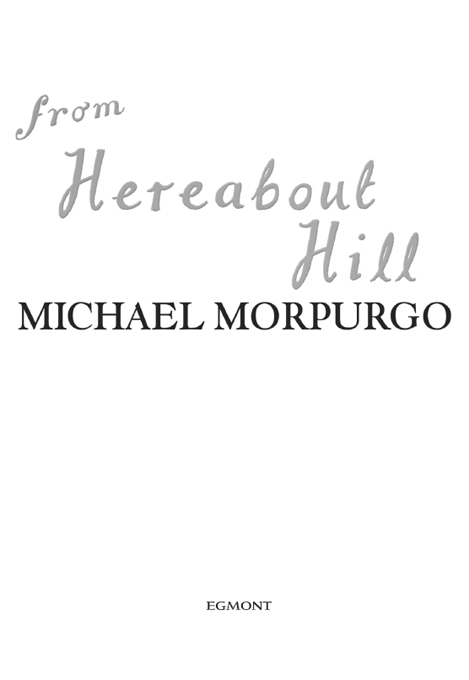

Foreword
Writers and miners have something in common, I think. Daily we search for and hope to find the rich seams we need. Some writers discover a seam so productive that they simply keep digging the way the seam leads them. My problem is that I am too easily bored. I find a rich seam, dig like crazy, and then move on to a new seam, a different seam. I may return to the old one later, I often do.
This somewhat impatient and immature way of mining for my stories is reflected in this collection of tales. And there is a good reason for it, a good excuse, anyway. All of these stories, except one, have been written at the behest of someone else, a friend or an editor. So I’ve been digging away contentedly in my seam, when some story mining expert (editor) comes up with a proposal that I might write a short story about such and such. ‘Stop your digging there,’ she says. ‘Look over there and follow that seam. It looks promising.’ Whether I do as I’m told entirely depends upon who’s doing the telling.
It was Miriam Hodgson who so often came up with proposals that I should explore new areas. That is why this book is dedicated to her – one of the truly great story mining experts. She knows where the gold runs deep and true, how a writer gets at it, and she’s good on the smelting too. She likes these stories, which makes me hope and believe that you will too.
Michael Morpurgo
June 2000
PS ‘From Hereabout Hill’ was written by a dear friend and wonderful poet, Seàn Rafferty, who lived in a cottage on the farm until his death in 1993. The ‘Hereabout Hill’ he writes of was his hill and is my hill, the place I live, the place I write my stories.
The Giant’s Necklace
So, a mining story to start with. For many years I used to go every summer to Zennor. I read Cornish legends, researched the often tragic history of tin mining in Penwith, wandered the wild moors above Zennor Churchtown. I wrote a book of five short stories called The White Horse of Zennor. This is the first.
The necklace stretched from one end of the kitchen table to the other, around the sugar bowl at the far end and back again, stopping only a few inches short of the toaster. The discovery on the beach of a length of abandoned fishing line draped with seaweed had first suggested the idea to Cherry; and every day of the holiday since then had been spent in one single-minded pursuit, the creation of a necklace of glistening pink cowrie shells. She had sworn to herself and to everyone else that the necklace would not be complete until it reached the toaster; and when Cherry vowed she would do something, she invariably did it.
Cherry was the youngest in a family of older brothers, four of them, who had teased her relentlessly since the day she was born, eleven years before. She referred to them as ‘the four mistakes’, for it was a family joke that each son had been an attempt to produce a daughter. To their huge delight Cherry reacted passionately to any slight or insult whether intended or not. Their particular targets were her size, which was diminutive compared with theirs, and her dark flashing eyes that could wither with one scornful look, her ‘zapping’ look, they called it. Although the teasing was interminable it was rarely hurtful, nor was it intended to be, for her brothers adored her; and she knew it.
Cherry was poring over her necklace, still in her dressing gown. Breakfast had just been cleared away and she was alone with her mother. She fingered the shells lightly, turning them gently until the entire necklace lay flat with the rounded pink of the shells all uppermost. Then she bent down and breathed on each of them in turn, polishing them carefully with a napkin.
‘There’s still the sea in them,’ she said to no one in particular. ‘You can still smell it, and I washed them and washed them, you know.’
‘You’ve only got today, Cherry,’ said her mother coming over to the table and putting an arm round her. ‘Just today, that’s all. We’re off back home tomorrow morning first thing. Why don’t you call it a day, dear? You’ve been at it every day – you must be tired of it by now. There’s no need to go on, you know. We all think it’s a fine necklace and quite long enough. It’s long enough surely?’
Cherry shook her head slowly. ‘No,’ she said. ‘Only that little bit left to do and then it’ll be finished.’
‘But they’ll take hours to collect, dear,’ her mother said weakly, recognising and at the same time respecting her daughter’s persistence.
‘Only a few hours,’ said Cherry, bending over, her brows furrowing critically as she inspected a flaw in one of her shells, ‘that’s all it’ll take. D’you know, there are five thousand, three hundred and twenty-five shells in my necklace already? I counted them, so I know.’
‘Isn’t that enough, Cherry?’ her mother said desperately.
‘No,’ said Cherry. ‘I said I’d reach the toaster, and I’m going to reach the toaster.’
Her mother turned away to continue the drying-up.
‘Well, I can’t spend all day on the beach today, Cherry,’ she said. ‘If you haven’t finished by the time we come away, I’ll have to leave you there. We’ve got to pack up and tidy the house – there’ll be no time in the morning.’
‘I’ll be all right,’ said Cherry, cocking her head on one side to view the necklace from a different angle. ‘There’s never been a necklace like this before, not in all the world. I’m sure there hasn’t.’ And then, ‘You can leave me there, Mum, and I’ll walk back. It’s only a mile or so along the cliff path and half a mile back across the fields. I’ve done it before on my own. It’s not far.’
There was a thundering on the stairs and a sudden rude invasion of the kitchen. Cherry was surrounded by her four brothers who leant over the table in mock appreciation of her necklace.
‘Ooh, pretty.’
‘Do they come in other colours? I mean, pink’s not my colour.’
‘Who’s it for? An elephant?’
‘It’s for a giant,’ said Cherry. ‘It’s a giant’s necklace, and it’s still not big enough.’
It was the perfect answer, an answer she knew would send her brothers into fits of laughter. She loved to make them laugh at her and could do it at the drop of a hat. Of course she no more believed in giants than they did, but if it tickled them pink to believe she did, then why not pretend?
She turned on them, fists flailing and chased them back up the stairs, her eyes burning with simulated fury. ‘Just ’cos you don’t believe in anything ’cept motorbikes and football and all that rubbish, just ’cos you’re great big, fat, ignorant pigs . . .’ She hurled insults up the stairs, and the worse the insult the more they loved it.
Boat Cove just below Zennor Head was the beach they had found and occupied. Every year for as long as Cherry could remember they had rented the same granite cottage, set back in the fields below the Eagle’s Nest and every year they came to the same beach because no one else did. In two weeks not another soul had ventured down the winding track through the bracken from the coastal path. It was a long climb down and a very much longer one up. The beach itself was almost hidden from the path that ran along the cliff top a hundred feet above. It was private and perfect and theirs. The boys swam in amongst the rocks, diving and snorkelling for hours on end. Her mother and father would sit side by side on stripey deck chairs. She would read endlessly and he would close his eyes against the sun and dream for hours on end.
Cherry moved away from them and clambered over the rocks to a narrow strip of sand in the cove beyond the rocks, and here it was that she mined for the cowrie shells. In the gritty sand under the cliff face she had found a particularly rich deposit. She was looking for pink cowrie shells of a uniform length, colour and shape – that was what took the time. Occasionally the boys would swim around the rocks and in to her little beach, emerging from the sea all goggled and flippered to mock her. But as she paid them little attention they soon tired and went away again. She knew time was running short. This was her very last chance to find enough shells to complete the giant’s necklace, and it had to be done.
The sea was calmer that day than she had ever seen it. The heat beat down from a windless, cloudless sky; even the gulls and kittiwakes seemed to be silenced by the sun. Cherry searched on, stopping only for a picnic lunch of pasties and tomatoes with the family before returning at once to her shells.
In the end the heat proved too much for her mother and father, who left the beach earlier than usual in mid-afternoon to begin to tidy up the cottage. The boys soon followed because they had tired of finding miniature crabs and seaweed instead of the sunken wrecks and treasure they had been seeking. So, by teatime Cherry was left on her own on the beach with strict instructions to keep her hat on, not to bathe alone and to be back well before dark. She had calculated she needed one hundred and fifty more cowrie shells and so far she had only found eighty. She would be back, she insisted, when she had finished collecting enough shells and not before.
Had she not been so immersed in her search, sifting the shells through her fingers, she would have noticed the dark grey bank of cloud rolling in from the Atlantic. She would have noticed the white horses gathering out at sea and the tide moving remorselessly in to cover the rocks between her and Boat Cove. When the clouds cut off the warmth from the sun as evening came on and the sea turned grey, she shivered with cold and put on her sweater and jeans. She did look up then and saw the angry sea, but she saw no threat in that and did not look back over her shoulder to Boat Cove. She was aware that time was running out so she went down on her knees again and dug feverishly in the sand. She had to collect thirty more shells.
It was the baleful sound of the foghorn somewhere out at sea beyond Gunnards Head that at last forced Cherry to take some account of the incoming tide. She looked for the rocks she would have to clamber over to reach Boat Cove again and the winding track that would take her up to the cliff path and safety, but they were gone. Where they should have been, the sea was already driving in against the cliff face. She was cut off. In a confusion of wonder and fear she looked out to sea at the heaving ocean that moved in towards her, seeing it now as a writhing grey monster breathing its fury on the rocks with every pounding wave.
Still Cherry did not forget her shells, but wrapping them inside her towel she tucked them into her sweater and waded out through the surf towards the rocks. If she timed it right, she reasoned, she could scramble back over them and into the Cove as the surf retreated. She reached the first of the rocks without too much difficulty; the sea here seemed to be protected from the force of the ocean by the rocks further out. Holding fast to the first rock she came to and with the sea up around her waist, she waited for the next incoming wave to break and retreat. The wave was unexpectedly impotent and fell limply on the rocks around her. She knew her moment had come and took it. She was not to know that piling up far out at sea was the first of the giant storm waves that had gathered several hundred miles out in the Atlantic, bringing with it all the momentum and violence of the deep ocean.
The rocks were slippery underfoot and more than once Cherry slipped down into seething white rock pools where she had played so often when the tide was out. But she struggled on until, finally, she had climbed high enough to be able to see the thin strip of sand that was all that was left of Boat Cove. It was only a few yards away, so close. Until now she had been crying involuntarily; but now, as she recognised the little path up through the bracken, her heart was lifted with hope and anticipation. She knew that the worst was over, that if the sea would only hold back she would reach the sanctuary of the Cove.
She turned and looked behind her to see how far away the next wave was, just to reassure herself that she had enough time. But the great surge of green water was on her before she could register either disappointment or fear. She was hurled back against the rock below her and covered at once by the sea.
She was conscious as she went down that she was drowning, but she still clutched her shells against her chest and hoped she had enough of them at last to finish the giant’s necklace. Those were her last thoughts before the sea took her away.
Cherry lay on her side where the tide had lifted her and coughed until her lungs were clear. She woke as the sea came in once again and frothed around her legs. She rolled on her back, feeling the salt spray on her face and saw that it was night. The sky above her was dashed with stars and the moon rode through the clouds.
She scrambled to her feet, one hand still holding her precious shells close to her. Instinctively she backed away from the sea and looked around her. With growing dismay she saw that she had been thrown back on the wrong side of the rocks, that she was not in Boat Cove. The tide had left only a few feet of sand and rock between her and the cliff face. There was no way back through the sea to safety.
She turned round to face the cliff that she realised now would be her last hope, for she remembered that this little beach vanished completely at high tide. If she stayed where she was she would surely be swept away again and this time she might not be so fortunate. But the cold seemed to have calmed her and she reasoned more deliberately now, wondering why she had not tried climbing the cliff before. She had hurried into her first attempt at escape and it had very nearly cost her her life. She would wait this time until the sea forced her up the cliff. Perhaps the tide would not come in that far. Perhaps they would be looking for her by now. It was dark. Surely they would be searching. Surely they must find her soon. After all, they knew where she was. Yes, she thought, best just to wait and hope.
She settled down on a ledge of rock that was the first step up on to the cliff face, drew her knees up to her chin to keep out the chill, and waited. She watched as the sea crept ever closer, each wave lashing her with spray and eating away gradually at the beach. She closed her eyes and prayed, hoping against hope that when she opened them the sea would be retreating. But her prayers went unanswered and the sea came in to cover the beach. Once or twice she thought she heard voices above her on the cliff path, but when she called out no one came. She continued to shout for help every few minutes, forgetting it was futile against the continuous roar and hiss of the waves. A pair of raucous white gulls flew down from the cliffs to investigate her and she called to them for help, but they did not seem to understand and wheeled away into the night.
Cherry stayed sitting on her rock until the waves threatened to dislodge her and then reluctantly she began her climb. She would go as far as she needed to and no further. She had scanned the first few feet above for footholds and it did look quite a simple climb to begin with, and so it proved. But her hands were numbed with cold and her legs began to tremble with the strain almost at once. She could see that the ledge she had now reached was the last deep one visible on the cliff face. The shells in her sweater were restricting her freedom of movement so she decided she would leave them there. Wrapped tight in the towel they would be quite safe. She took the soaking bundle out of her sweater and placed it carefully against the rock face on the ledge beside her, pushing it in as far as it would go. ‘I’ll be back for you,’ she said, and reached up for the next lip of rock. Just below her the sea crashed against the cliff as if it wanted to suck her from the rock face and claim her once again. Cherry determined not to look down but to concentrate on the climb.
At first, she imagined that the glow above her was from a torch. She shouted and screamed until she was weak from the effort of it. But although no answering call came from the night, the light remained pale and beckoning, wider than that of a torch. With renewed hope Cherry found enough strength to inch her way up the cliff, until she reached the entrance to a narrow cave. It was filled with a flickering yellow light like that of a candle shaken by the wind. She hauled herself up into the mouth of the cave and sat down exhausted, looking back down at the furious sea frothing beneath her. She laughed aloud in triumph. She was safe! She had defied the sea and won! Her one regret was that she had had to leave her cowrie shells behind. She would fetch them tomorrow after the tide had gone down again.
For the first time now she began to think of her family and how worried they would be, but the thought of walking in through the front door all dripping and dramatic made her almost choke with excitement.
As she reached forward to brush a sharp stone from the sole of her foot, Cherry noticed that the narrow entrance to the cave was half sealed in. She ran her fingers over the stones and cement to make sure, for the light was poor. It was at that moment that she recognised exactly where she was. She recalled now the giant fledgling cuckoo one of her brothers had spotted being fed by a tiny rock pipit earlier in the holidays, how they had quarrelled over the binoculars and how, when she had finally usurped them and made her escape across the rocks, she had found the cuckoo perched at the entrance to a narrow cave some way up the cliff face from the beach.
She had asked about the man-made walling, and her father had told her of the old tin mines whose lodes and adits criss-crossed the entire coastal area around Zennor. This one, he said, might have been the mine they called Wheel North Grylls, and he thought the adit must have been walled up to prevent the seas from entering the mine in a storm. It was said there had been an accident in the mine only a few years after it was opened over a hundred years before, and that the mine had had to close soon after when the mine owners ran out of money to make the necessary repairs. The entire story came back to her now, and she wondered where the cuckoo was and whether the rock pipit had died with the effort of keeping the fledgling alive. Tin mines, she thought, lead to the surface, and the way home. That thought and her natural inquisitiveness about the source of light persuaded her to her feet and into the tunnel.
The adit became narrower and lower as she crept forward, so that she had to go down on her hands and knees, sometimes flat on her stomach. Although she was out of the wind now, it seemed colder. She felt she was moving downwards for a minute or two, for the blood was coming to her head and her weight was heavy on her hands. Then, quite suddenly, she found the ground levelling out and saw a large tunnel ahead of her. There was no doubt as to which way she should turn, for one way the tunnel was black, and the other way was lighted with candles that lined the lode wall as far as she could see. She called out, ‘Anyone there? Anyone there?’ She paused to listen for the reply; but all she could hear now was the muffled roar of the sea and the continuous echoing of dripping water.
The tunnel widened now and she found she could walk upright again; but her feet hurt against the stone and so she moved slowly, feeling her way gently with each foot. She had gone only a short distance when she heard the tapping for the first time, distinct and rhythmic, a sound that was instantly recognisable as hammering. It became sharper and noticeably more metallic as she moved up the tunnel. She could hear the distant murmur of voices and the sound of falling stone. Even before she came out of the tunnel and into the vast cave she knew she had happened upon a working mine.
The cave was dark in all but one corner and here she could see two men bending to their work, their backs towards her. One of them was inspecting the rock face closely whilst the other swung his hammer with controlled power, pausing only to spit on his hands from time to time. They wore round hats with turned up brims that served also as candlesticks, for a lighted candle was fixed to each, the light dancing with the shadows along the cave walls as they worked.
Cherry watched for some moments until she made up her mind what to do. She longed to rush up to them and tell of her escape and to ask them to take her to the surface, but a certain shyness overcame her and she held back. Her chance to interrupt came when they sat down against the rock face and opened their canteens. She was in the shadows and they still could not see her.
‘Tea looks cold again,’ one of them said gruffly. ‘’Tis always cold. I’m sure she makes it wi’ cold water.’
‘Oh stop your moaning, Father,’ said the other, a younger voice, Cherry felt. ‘She does her best. She’s five little ones to look after and precious little to do it on. She does her best. You mustn’t keep on at her so. It upsets her. She does her best.’
‘So she does, lad, so she does. And so for that matter do I, but that don’t stop her moaning at me and it’ll not stop me moaning at her. If we didn’t moan at each other, lad, we’d have precious little else to talk about, and that’s a fact. She expects of it me, lad, and I expects it of her.’


